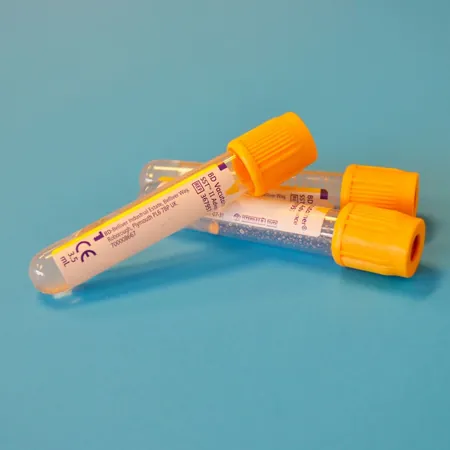
Shocking Link Revealed: Preoperative Anemia Could Lead to Delirium After Surgery!
2025-04-11
Author: Mei
Could Preoperative Anemia Be a Hidden Danger?
A groundbreaking study has uncovered a concerning connection between preoperative anemia and the risk of postoperative delirium (POD) in elderly patients undergoing non-cardiac surgery. This condition, affecting up to 5% of surgical patients, can seriously complicate recovery and significantly increase the risk of morbidity and mortality.
The Study's Findings: Numbers That Speak Volumes!
Conducted by a team from Samsung Medical Center, this analysis involved a staggering 62,600 patients aged over 60 who had surgery between January 2011 and June 2019. Patients were categorized based on their hemoglobin levels—anemia was identified at levels below 13 g/dL for men and 12 g/dL for women.
The results were striking: the overall occurrence of POD within a week post-surgery was 3.9%, but for those with anemia, this rate skyrocketed to 7.2%, compared to just 2.6% in the normal hemoglobin group. The adjusted odds ratio indicated a 42% higher risk of delirium associated with preoperative anemia.
The Grim Reality: Anemia's Long-term Consequences!
The implications didn’t stop at delirium. Anemia patients also faced higher mortality rates: a shocking 2.68 times more likely to die within a year, and over double the risk after three years compared to their non-anemic counterparts.
Severity Matters: A Closer Look at Anemia Levels!
Breaking it down further into mild and moderate-to-severe categories, the incidence of POD increased with the severity of anemia—showing a 6.1% risk in mild cases and 9.0% in severe cases. Notably, the study highlighted that men and those with fewer comorbidities were particularly vulnerable.
What's Behind This Association?
The researchers offer a compelling theory: the reduced oxygen capacity in anemic patients may lead to cerebral hypoxia, triggering oxidative stress that disrupts brain function. While previous studies confirm a link between poor brain oxygenation and delirium, this study did not directly measure that relationship.
Caution Ahead: Acknowledging Limitations!
Despite these alarming findings, the researchers acknowledged limitations including the inherent challenges in diagnosing POD and the inability to account for interventions aimed at correcting perioperative anemia.
A Call to Action: What Comes Next?
The authors urge the medical community to conduct further prospective studies to explore if managing preoperative anemia can effectively lessen the risk of delirium post-surgery. These insights could transform preoperative care, potentially safeguarding vulnerable patients from serious complications.


 Brasil (PT)
Brasil (PT)
 Canada (EN)
Canada (EN)
 Chile (ES)
Chile (ES)
 Česko (CS)
Česko (CS)
 대한민국 (KO)
대한민국 (KO)
 España (ES)
España (ES)
 France (FR)
France (FR)
 Hong Kong (EN)
Hong Kong (EN)
 Italia (IT)
Italia (IT)
 日本 (JA)
日本 (JA)
 Magyarország (HU)
Magyarország (HU)
 Norge (NO)
Norge (NO)
 Polska (PL)
Polska (PL)
 Schweiz (DE)
Schweiz (DE)
 Singapore (EN)
Singapore (EN)
 Sverige (SV)
Sverige (SV)
 Suomi (FI)
Suomi (FI)
 Türkiye (TR)
Türkiye (TR)
 الإمارات العربية المتحدة (AR)
الإمارات العربية المتحدة (AR)